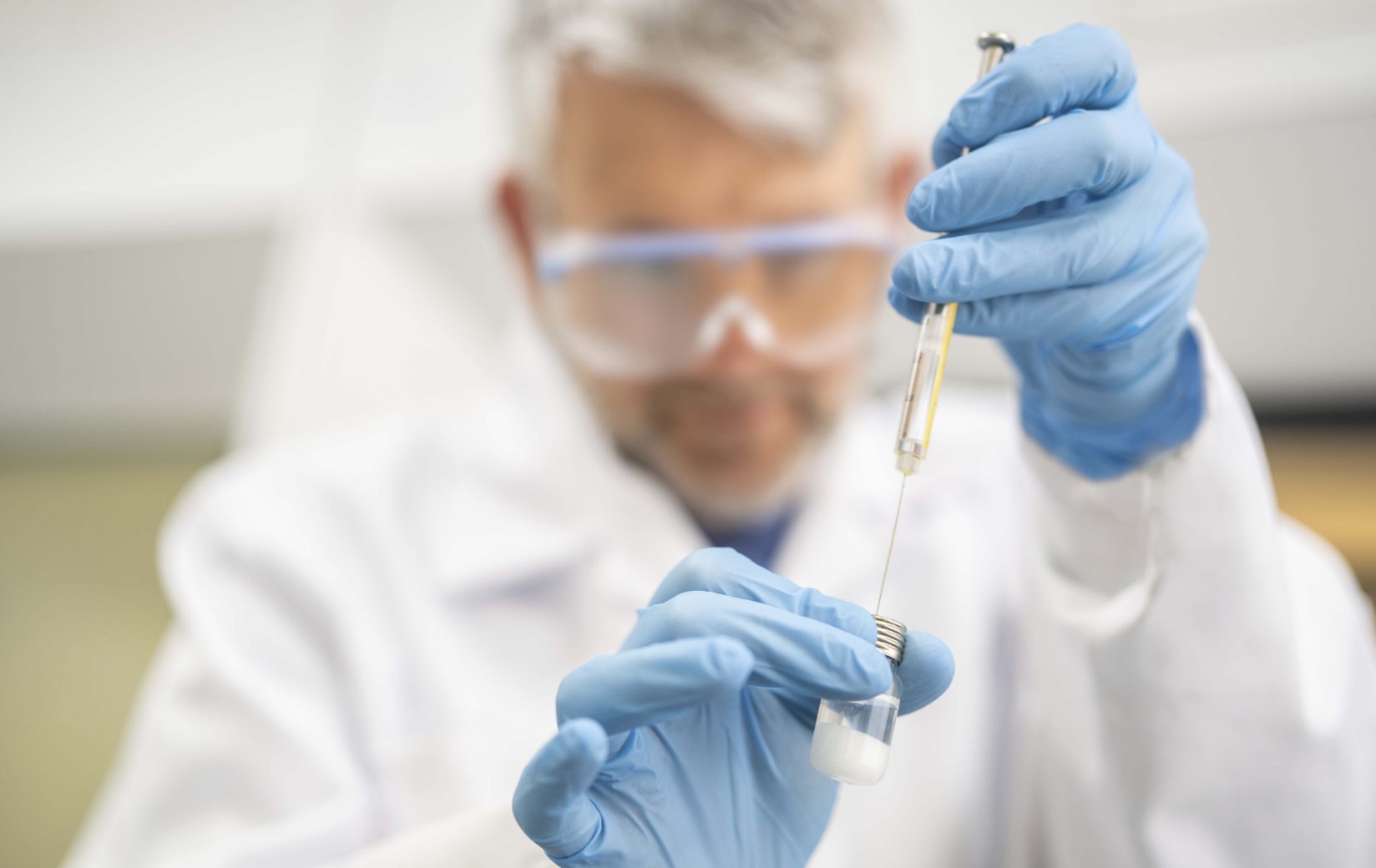A Quality Control (QC) Chemist plays a crucial role in ensuring the safety, efficacy, and quality of product to meet the required quality standards before they reach the market. They ensure that every step of the manufacturing process meets stringent quality standards, ultimately safeguarding the integrity and safety of the final product.
Their day involves a mix of hands-on testing, meticulous documentation and collaboration with other teams to verify and improve quality standards.
A typical day in the life of a QC Chemist is busy, varied and challenging and includes:
- Raw Material Testing
- Sampling and Analysis: Collect samples of raw materials and perform chemical analyses to ensure they meet specified standards.
- Documentation: Maintain records of raw material tests and ensure compliance with regulatory requirements.
- In-Process Testing
- Monitoring: Perform tests on intermediate products during the manufacturing process to ensure consistency and compliance with specifications.
- Troubleshooting: Identify and address any deviations from quality standards during production.
- Finished Product Testing
- Quality Assessment: Conduct extensive tests on finished products to verify they meet all quality and safety standards.
- Validation: Ensure that final products adhere to both company and regulatory standards before release.
- Method Development and Validation
- Standard Operating Procedures (SOPs): Develop and validate new analytical methods and SOPs for quality testing.
- Calibration: Regularly calibrate and maintain laboratory instruments and equipment to ensure accurate results.
- Compliance and Documentation
- Regulatory Compliance: Ensure all QC activities comply with relevant regulatory guidelines (e.g., FDA, ISO, GMP).
- Record Keeping: Maintain detailed and accurate records of all QC tests and procedures for auditing purposes.
- Quality Improvement
- Continuous Improvement: Analyse data from QC tests to identify trends and areas for improvement in the manufacturing process.
- Root Cause Analysis: Conduct investigations to determine the root cause of quality issues and implement corrective actions.
- Training and Supervision
- Staff Training: Train production and QC staff on quality standards and testing procedures.
- Team Supervision: Supervise QC technicians and ensure that all team members follow relevant protocols.
- Health and Safety
- Safety Protocols: Ensure that all QC activities are conducted in compliance with health and safety regulations.
- Risk Management: Identify any potential hazards in the QC lab and manufacturing environment and manage the risks associated with them.
- Customer Interaction
- Complaint Resolution: Investigate customer complaints related to product quality and provide timely solutions.
- Technical Support: Offer technical support and quality-related information to customers and stakeholders.
- Documentation and Reporting
- Quality Reports: Prepare and present detailed reports on quality control findings to management.
- Regulatory Submissions: Assist in the preparation of documents for regulatory submissions and audits.
Tools and Techniques Used by QC Chemists:
- Analytical Instruments: High-Performance Liquid Chromatography (HPLC), Gas Chromatography (GC), Spectrophotometry, etc.
- Microbiological Testing: For products that are susceptible to microbial contamination.
- Statistical Process Control (SPC): To monitor and control the quality during manufacturing.
In summary, a QC for chemical manufacturing is indispensable for ensuring the reliability, safety, and compliance of chemical processes and products and supports scientific advancement, consumer protection, and economic efficiency. AGMA’s QMS is certified with BS EN ISO 9001: 2015.


